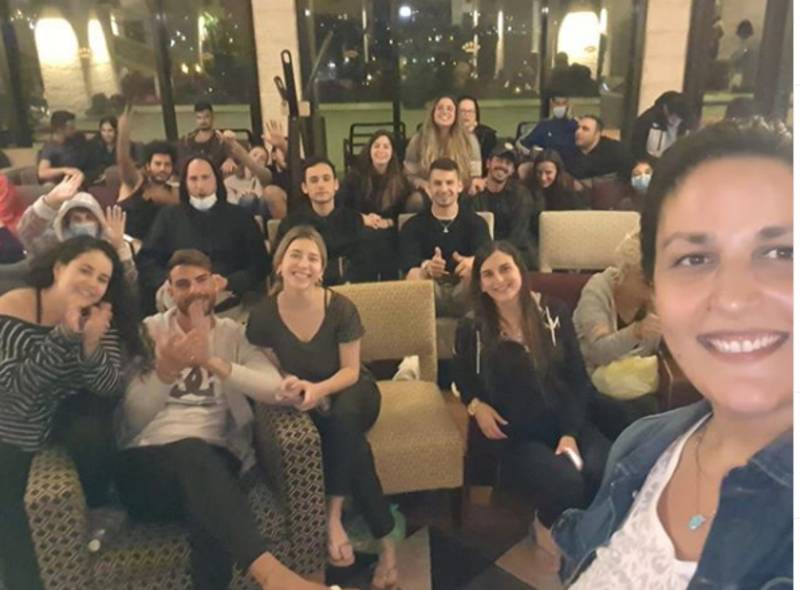Guest post by Jeff Mosenkis of Innovations for Poverty Action Coronavirus patient, comedian Noam Shuster, found herself at the center of an accidental social experiment profiled on the Rough Translation podcast My colleague Kate Glynn-Broderick writes today with an example of how her existing project in Bangladesh, exploring gender gaps in access to mobile money and banking is quickly pivoting to COVID-19, as Bangladesh’s government plans to use those same platforms to distribute social protection, threatening to leave the most marginalized people out of the government response. South Africa’s National Research Foundation COVID-19 Africa Rapid Grant Fund offers funding to researchers and also journalists and policy communicators from 15 sub-Saharan African countries working on COVID-19.
Topics:
Jeff Mosenkis (IPA) considers the following as important: COVID-19, development, Economics, links, miscellany, news, podcast, podcasts
This could be interesting, too:
Lars Pålsson Syll writes Schuldenbremse bye bye
Lars Pålsson Syll writes What’s wrong with economics — a primer
Lars Pålsson Syll writes Krigskeynesianismens återkomst
Lars Pålsson Syll writes Finding Eigenvalues and Eigenvectors (student stuff)
Guest post by Jeff Mosenkis of Innovations for Poverty Action

Coronavirus patient, comedian Noam Shuster, found herself at the center of an accidental social experiment profiled on the Rough Translation podcast
- My colleague Kate Glynn-Broderick writes today with an example of how her existing project in Bangladesh, exploring gender gaps in access to mobile money and banking is quickly pivoting to COVID-19, as Bangladesh’s government plans to use those same platforms to distribute social protection, threatening to leave the most marginalized people out of the government response.
- South Africa’s National Research Foundation COVID-19 Africa Rapid Grant Fund offers funding to researchers and also journalists and policy communicators from 15 sub-Saharan African countries working on COVID-19. Applications due June 17.
- Some good news stories over the last few weeks help upend some implicit thinking- many African countries took COVID seriously and prepared while European and U.S. governments didn’t:
- Also, from India, How Kerala’s rock star health minister helped save it from Covid-19
- Elsewhere, Greece and Argentina have also done better than expected, because political leaders took the advice of health officials early on.
This was also a good reminder about the usual script when it comes to how viruses play out in poor vs. rich countries:
People like hearing about my research interests when I start talking about the role of West African funeral rites in Ebola outbreaks
They don’t like hearing about my research interests when I start talking about the role of American cultural aspects in the spread of COVID-19
— Allison Elizabeth Bailey (@AEBaileyEpi) May 16, 2020
People everywhere are resistant to changes to their culture and traditions
Don’t throw stones from glass houses
— Allison Elizabeth Bailey (@AEBaileyEpi) May 16, 2020
- The Economist has a nice profile of Princeton economist Leonard Wantchekon, who escaped from being a political prisoner in Benin, and went on to found the African School of Economics there to make top notch econ training more accessible. But you can read his story in his own words: He’s posted the introduction and chapter 7 of his book here.
- One of the points made in the Economist profile about the school is that talent is found all over, opportunity is not. It’s a helpful reminder that if you’re an econ researcher who relies on talented staff in another country for data collection (even if your communication goes through an American RA), a helpful thing to do is set aside some time to talk to them about their career goals and how you can help.
- Dave Evans pioneers a YouTube paper “reaction video” format, walking the viewer through a paper – in this case, on refugee child education. And today he has a “movie trailer“-style one explaining how advance market commitments for vaccines work.
- A good podcast from Rough Translation: Hotel Corona (Apple) about how a hotel leased to the Israeli government for recovering Corona patients became a nation-captivating social experiment and unwitting reality show.
Click through for this thread of the best historical U.S. Congressional facial hair, you won’t be sorry.
I am on a mission to find out which historical Member of Congress had the wildest facial hair.
The Honarable George Frederic Kribbs (D-PA, 1893-1895) is currently leading in the standings. pic.twitter.com/vSbwfLF2tL
— Amelia Frappolli (@AmeliaFrappolli) May 22, 2020
